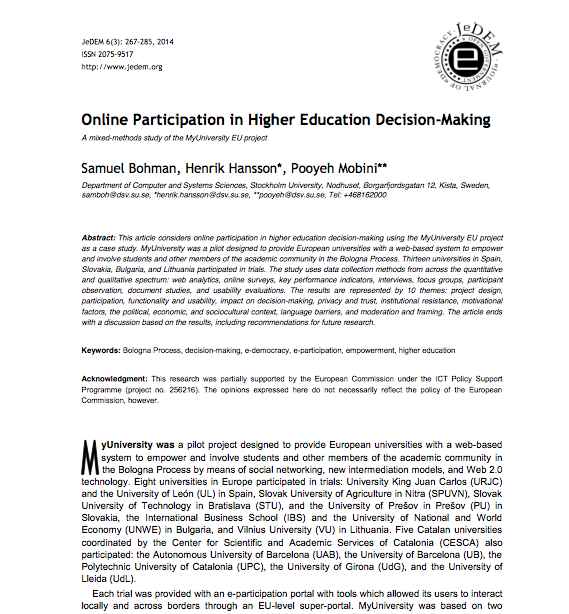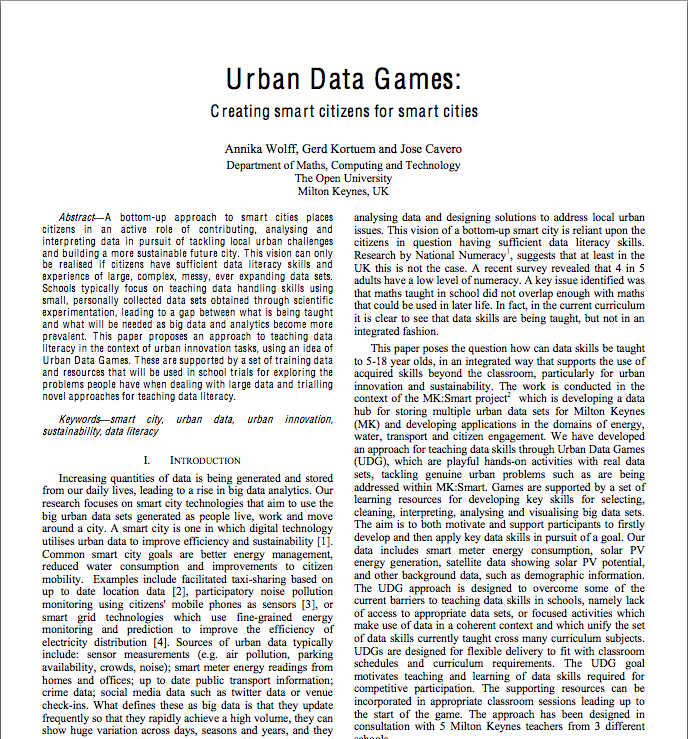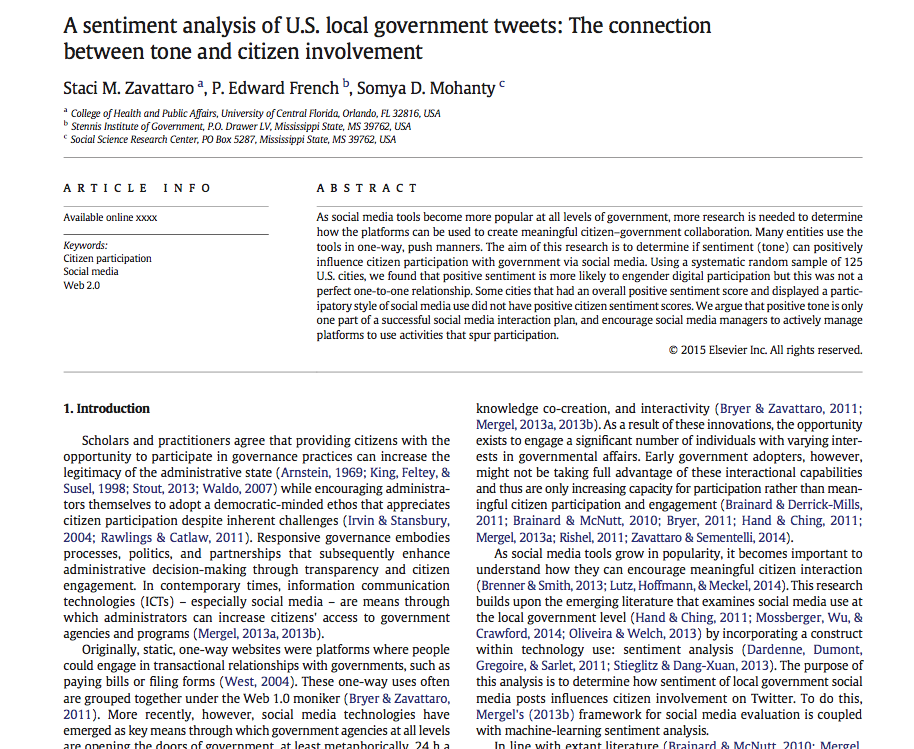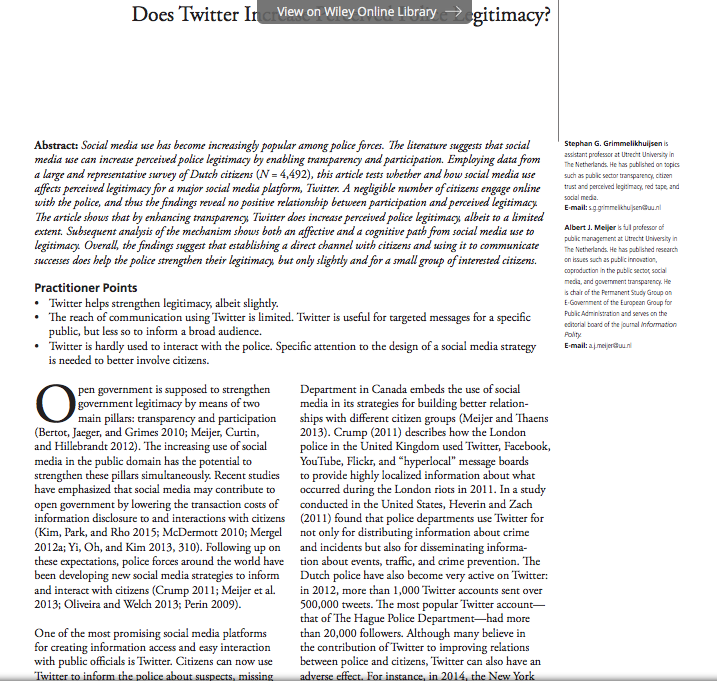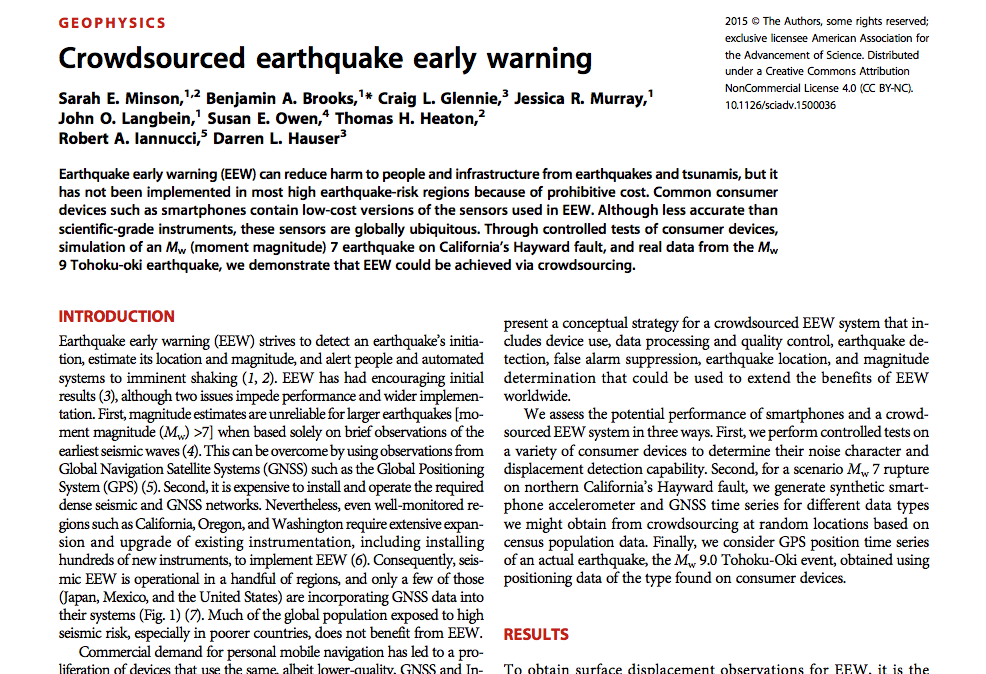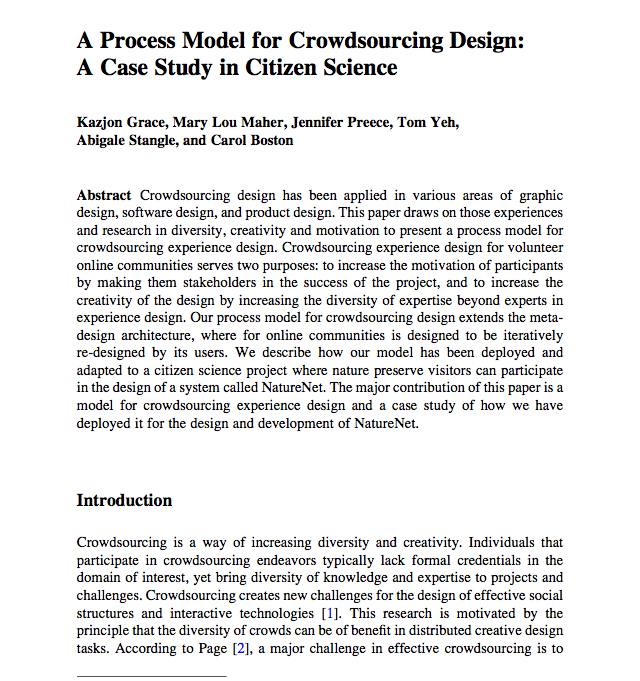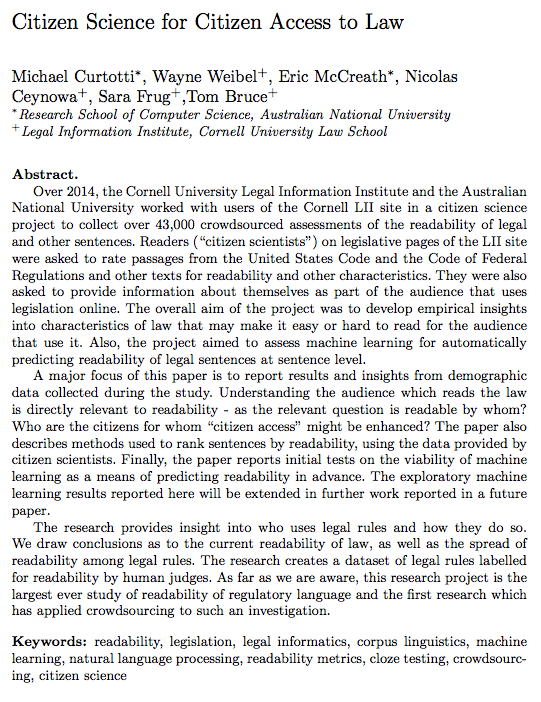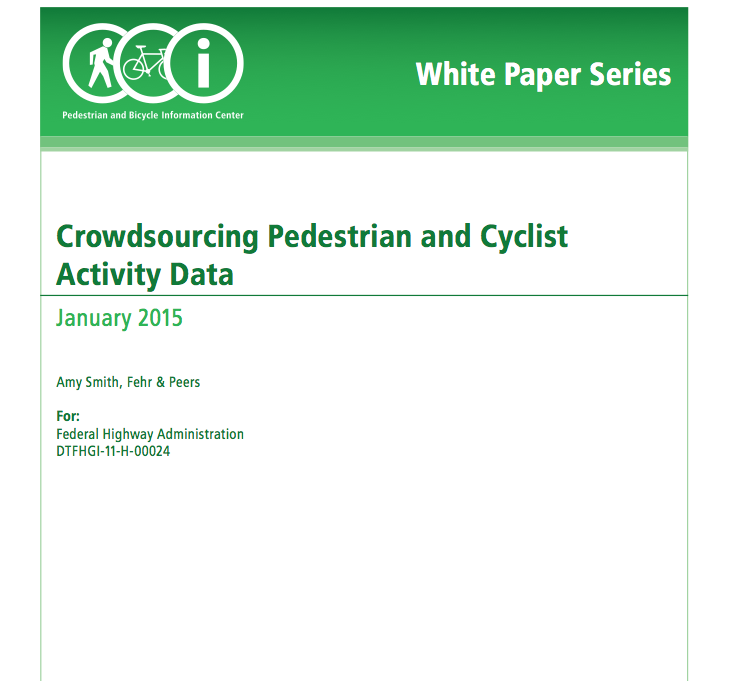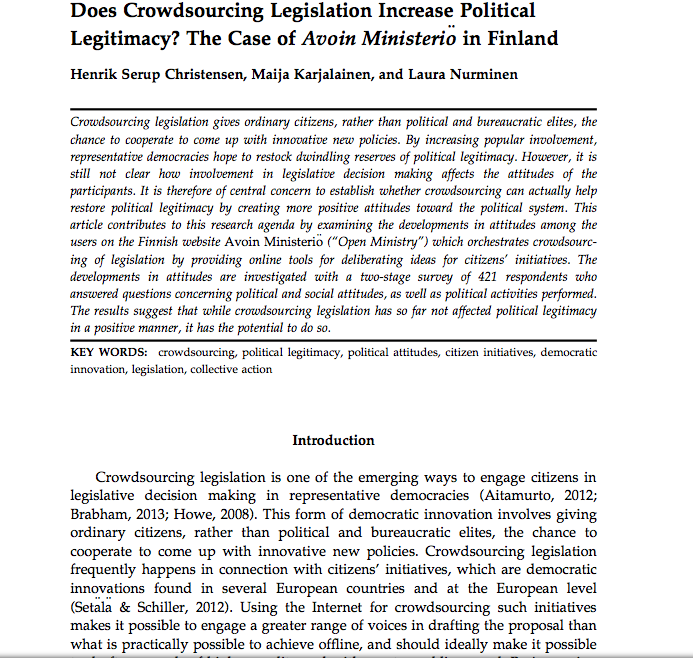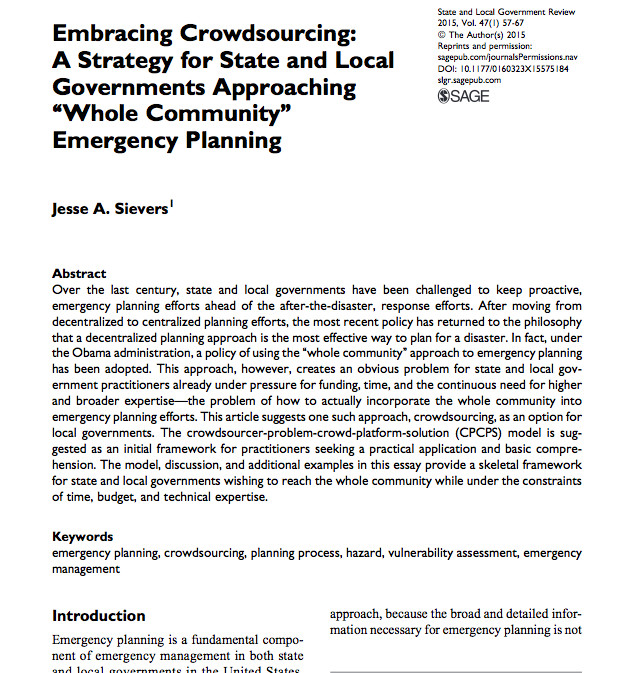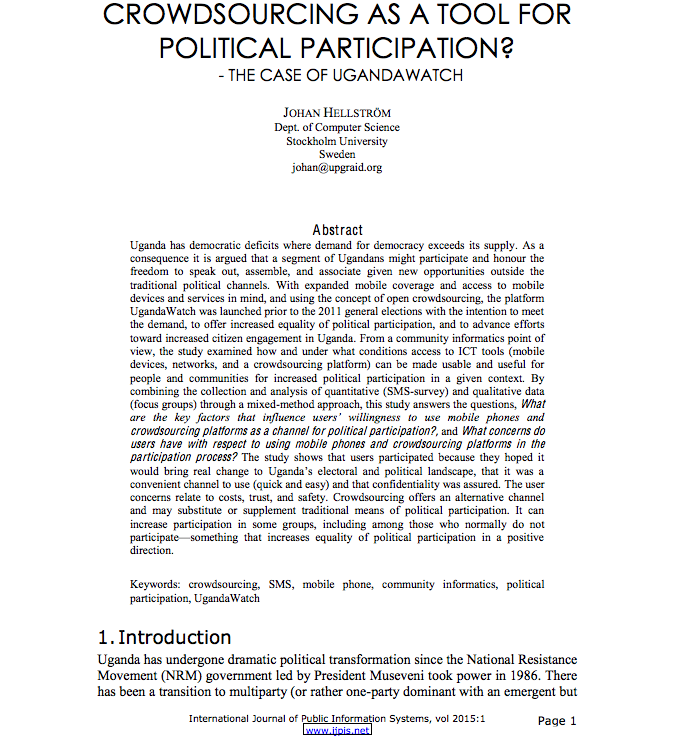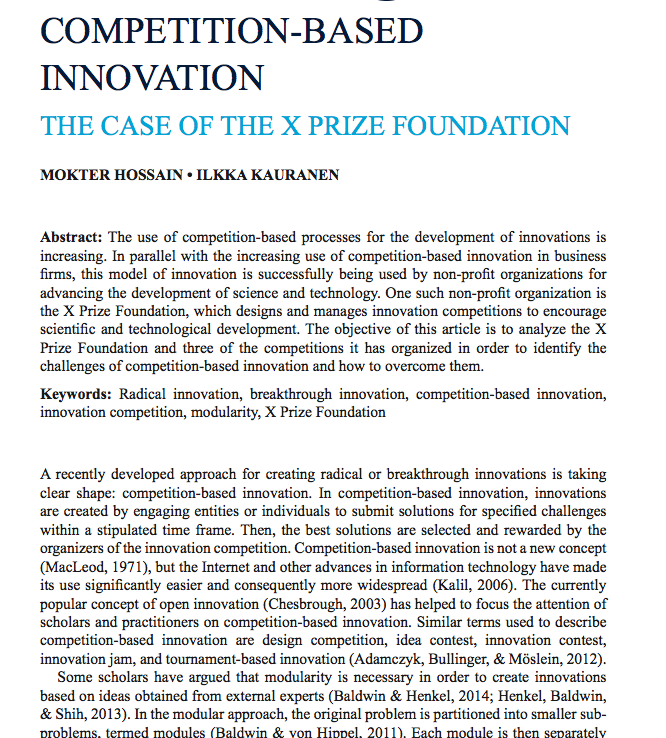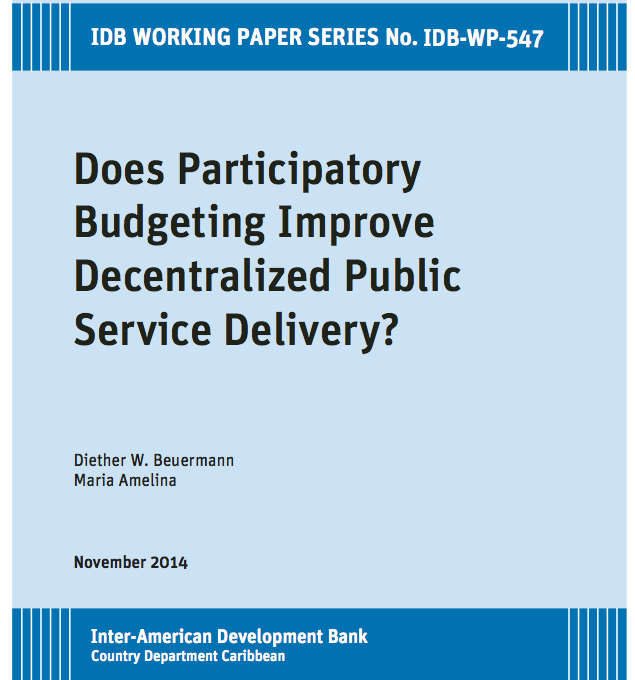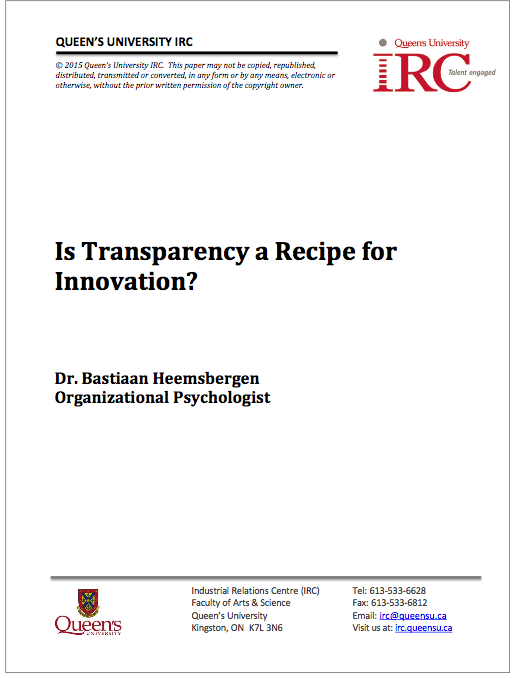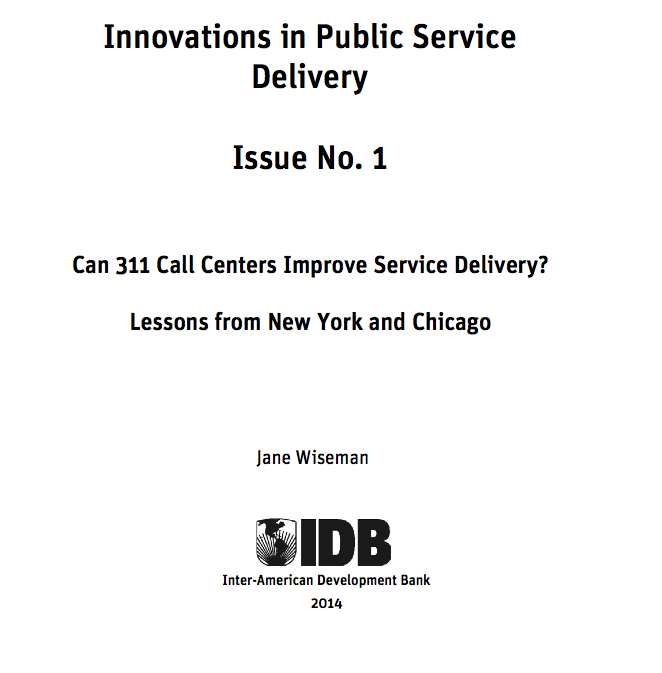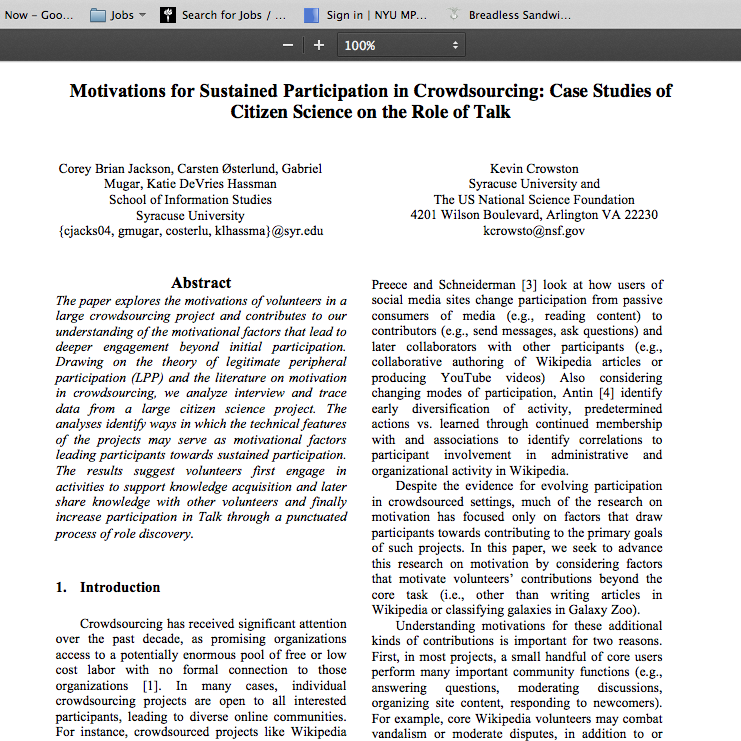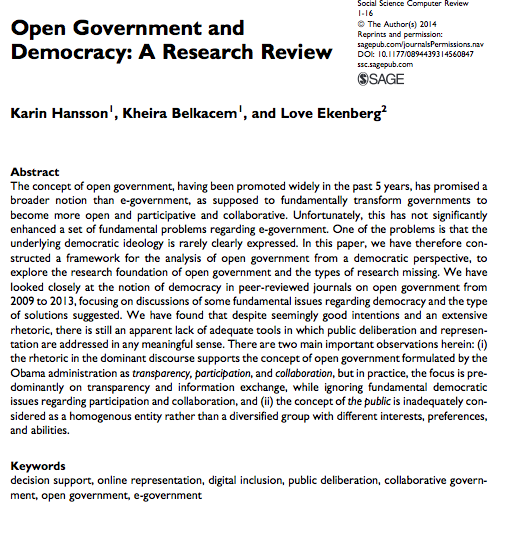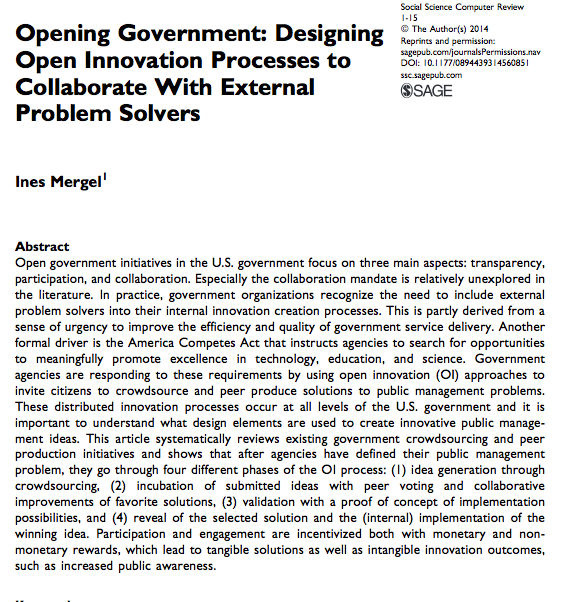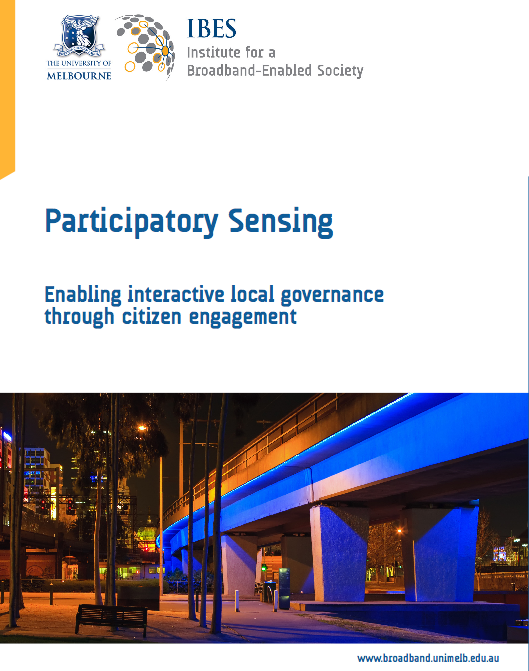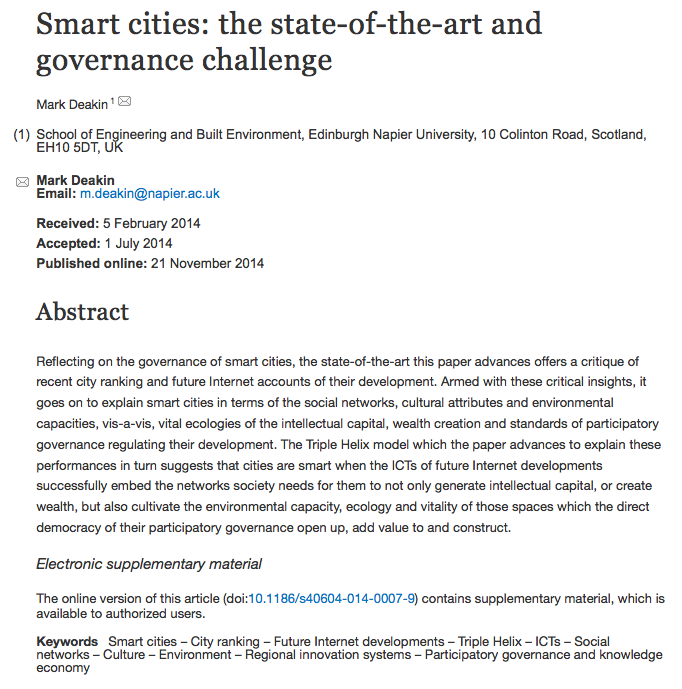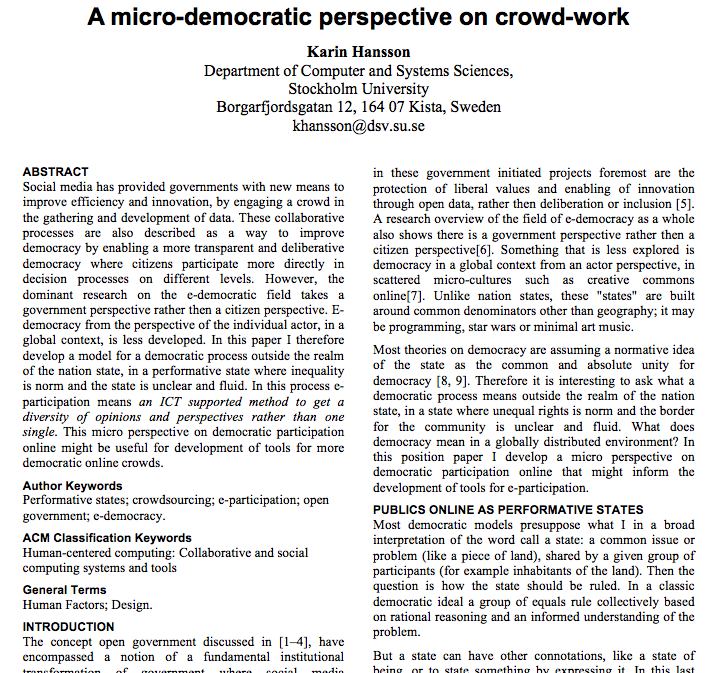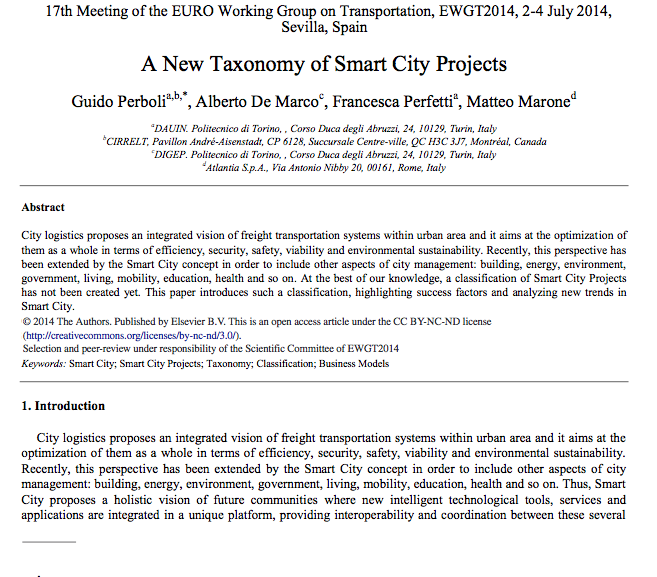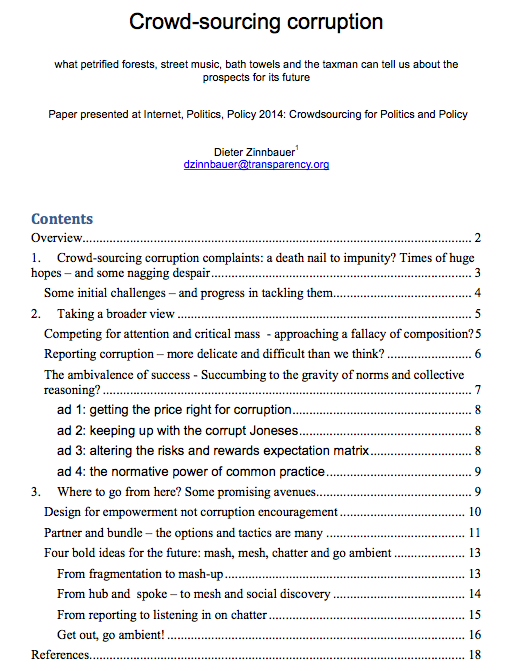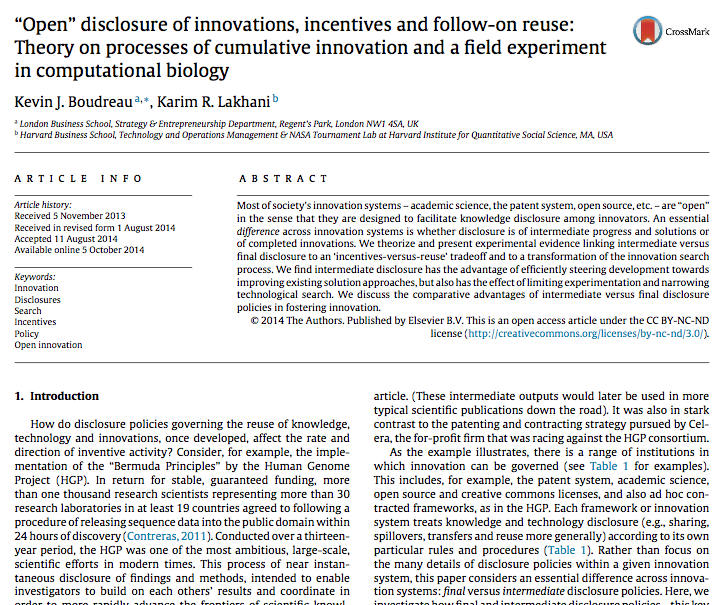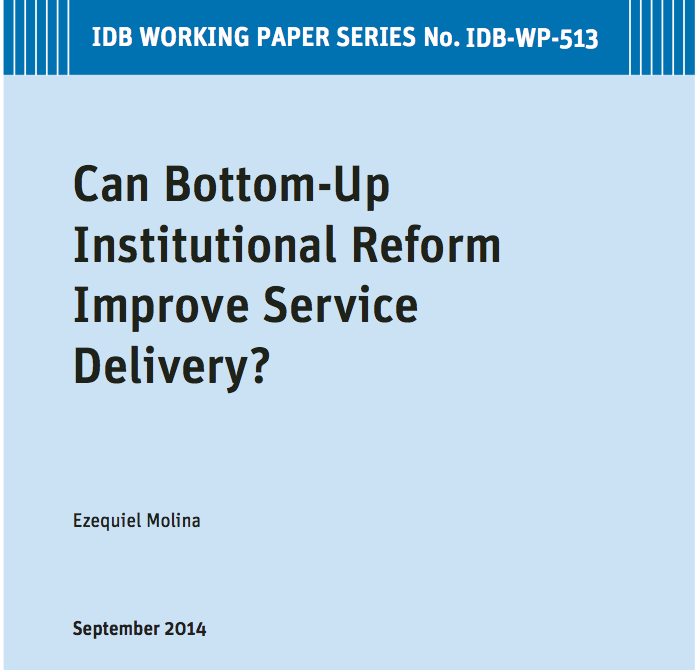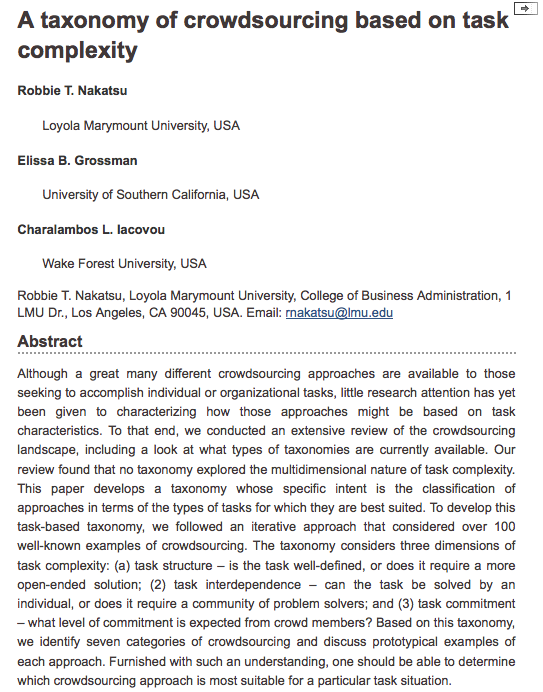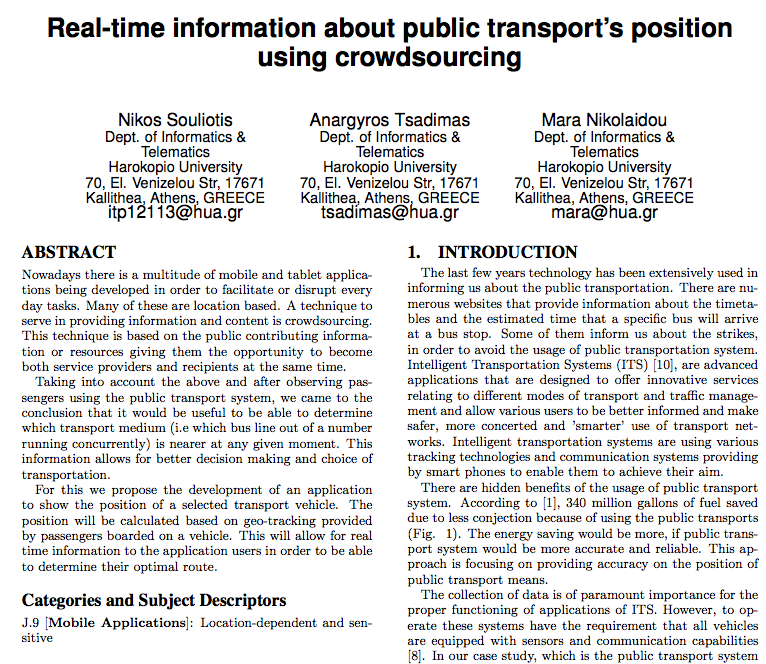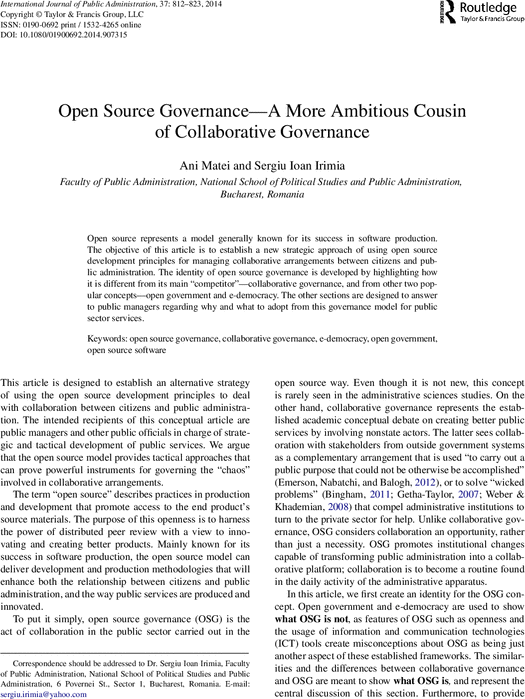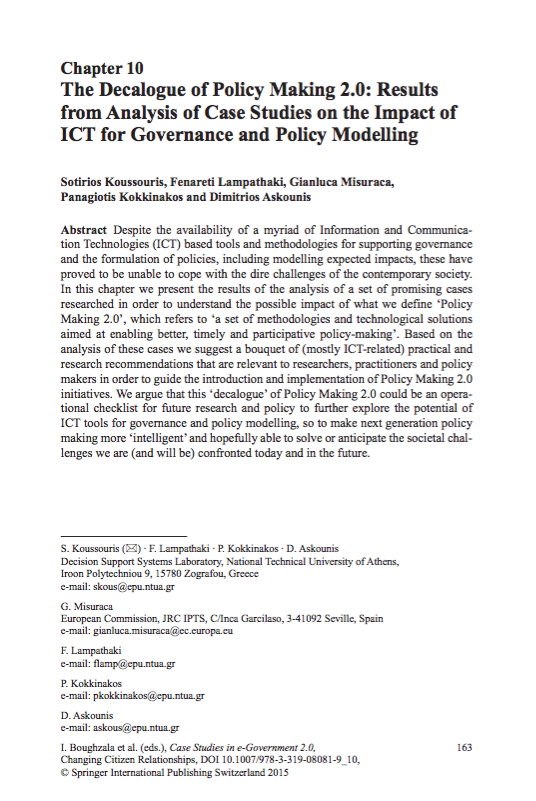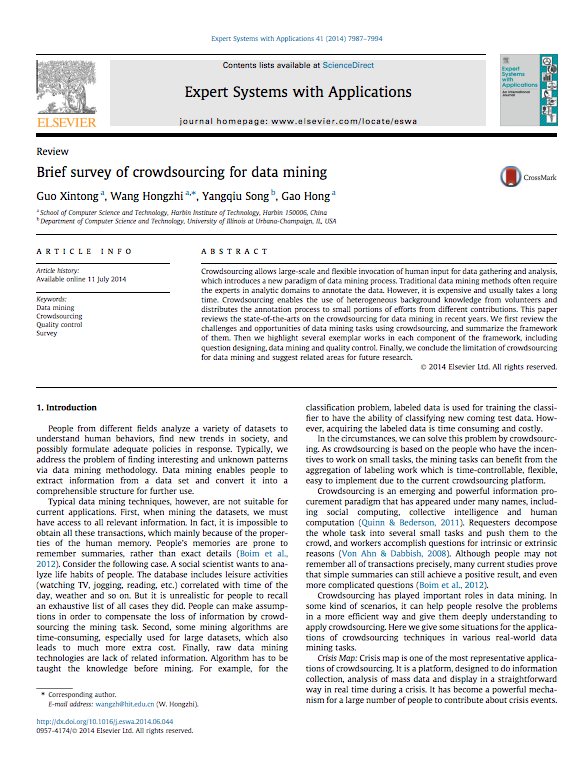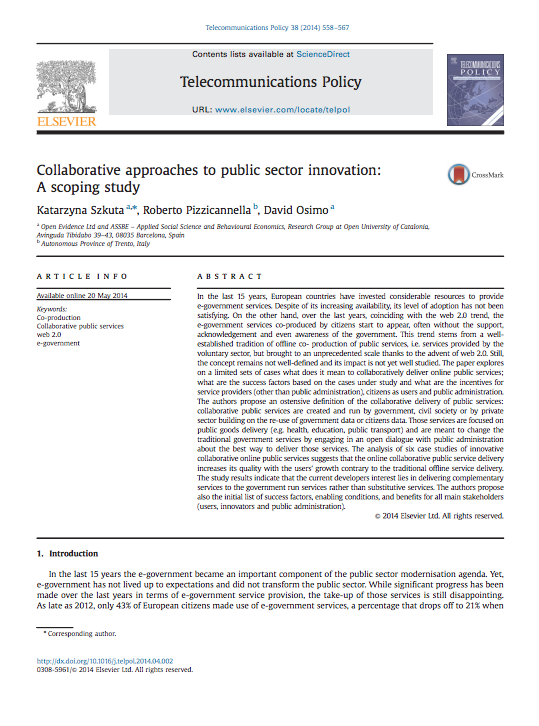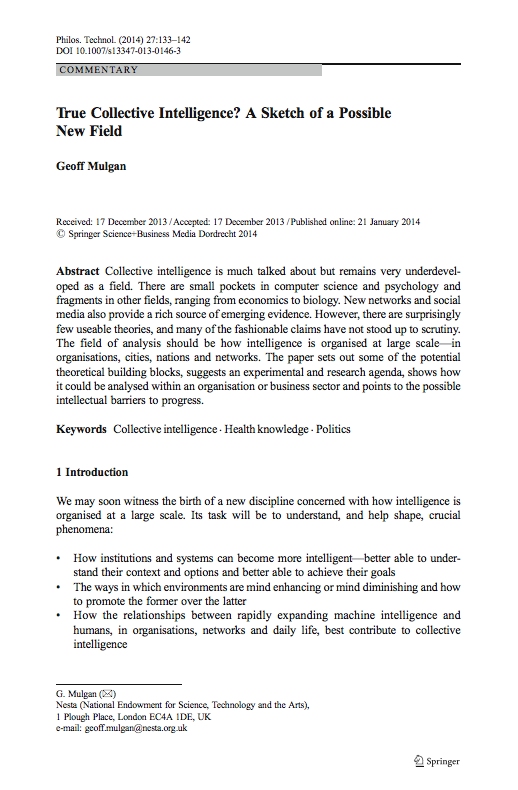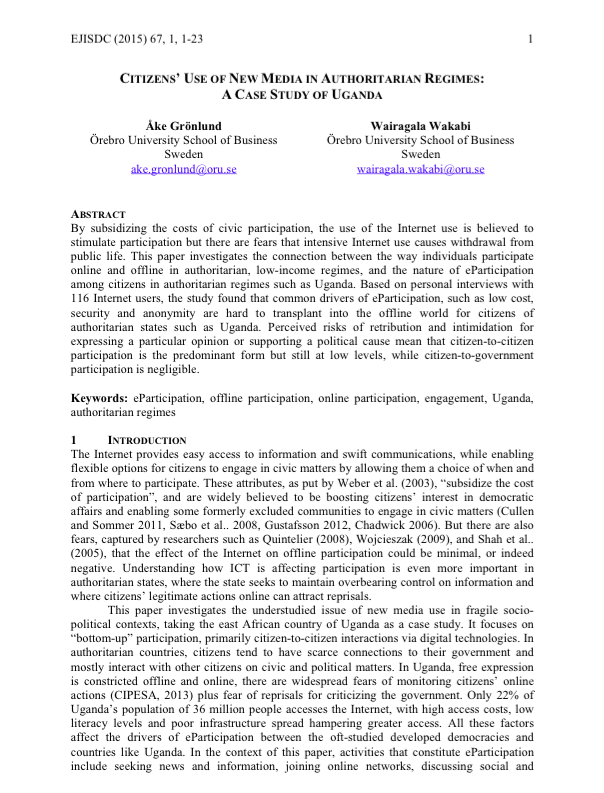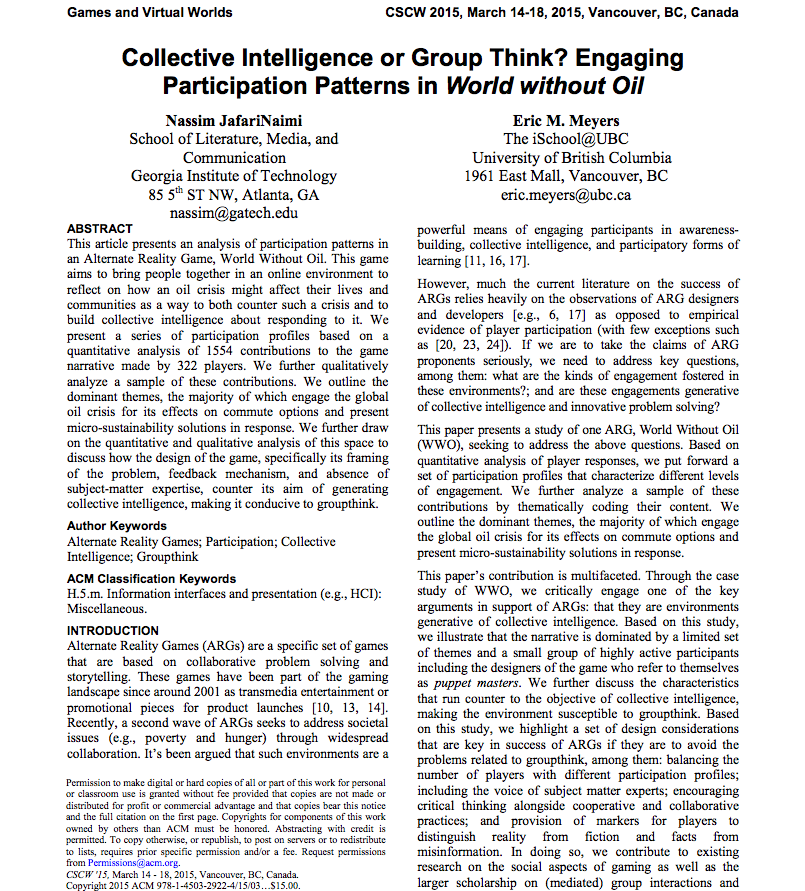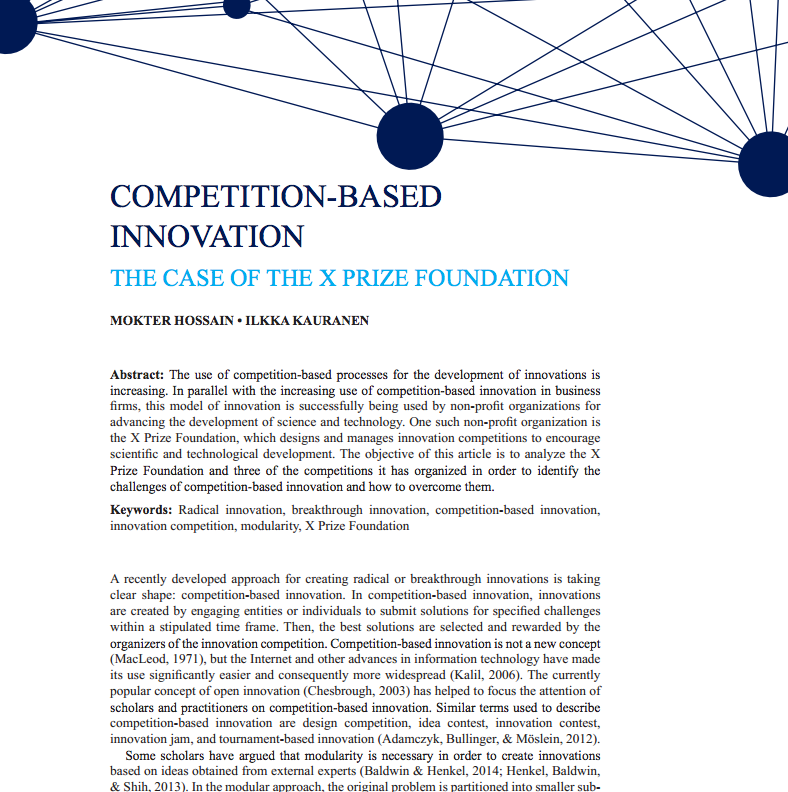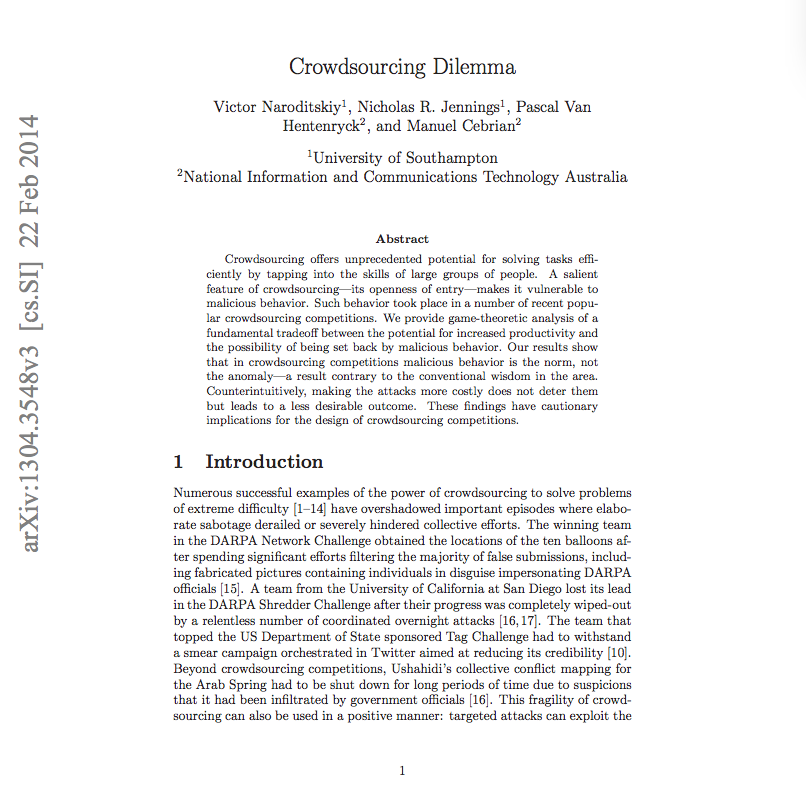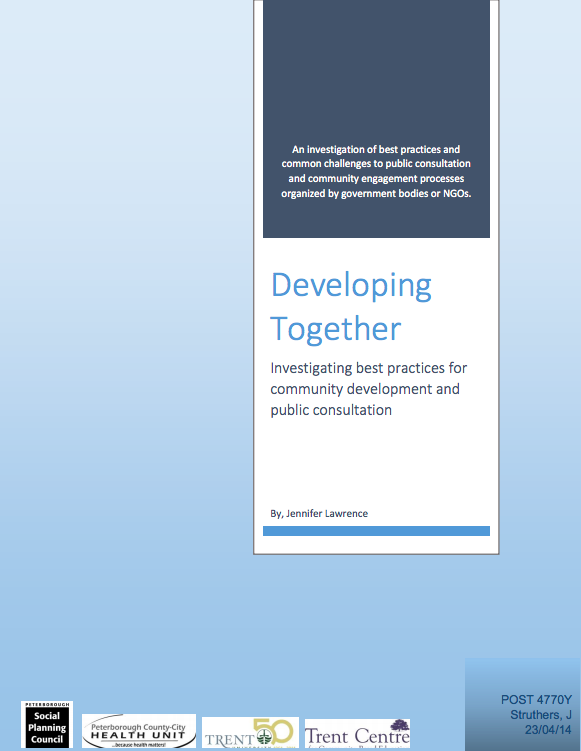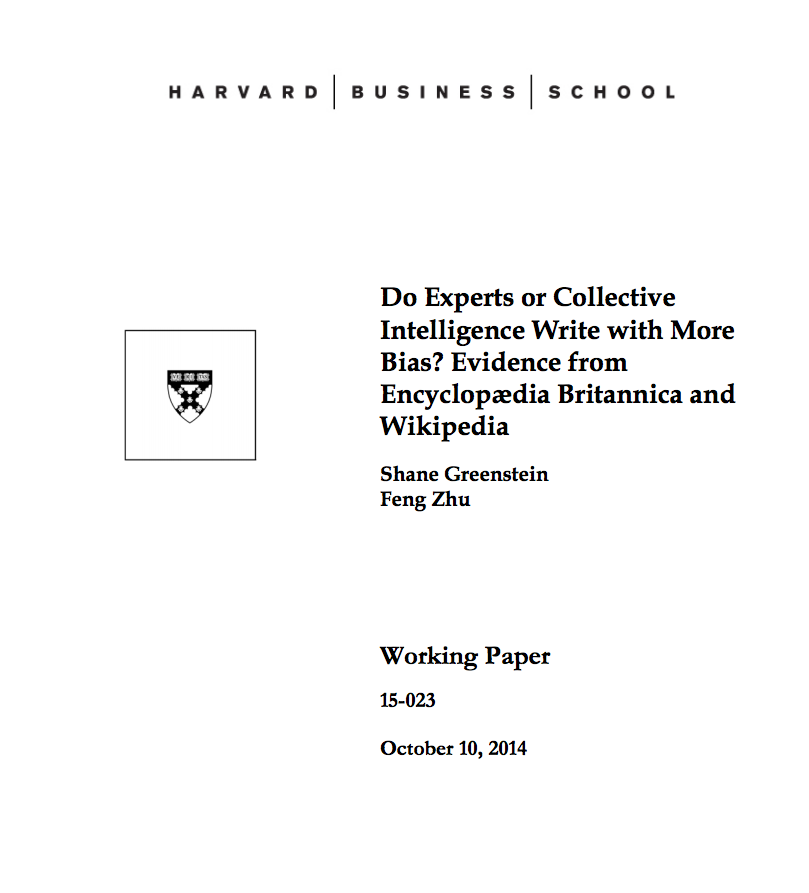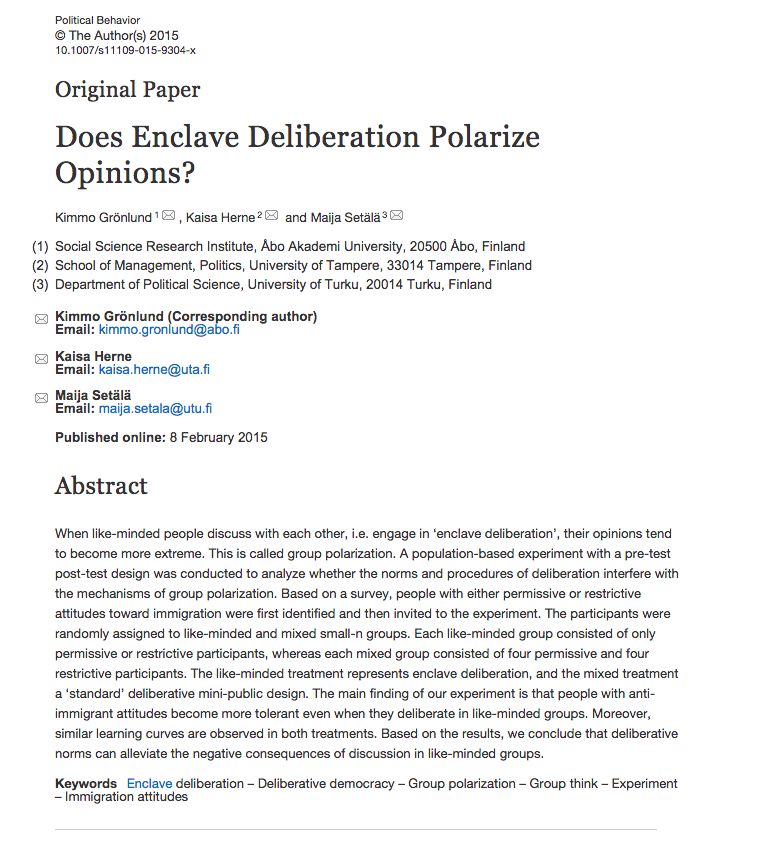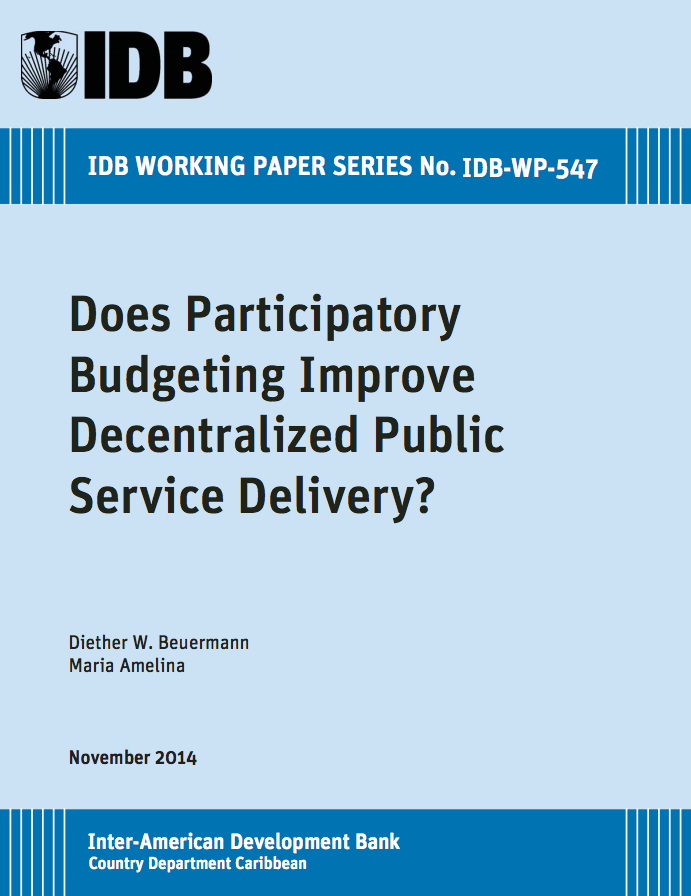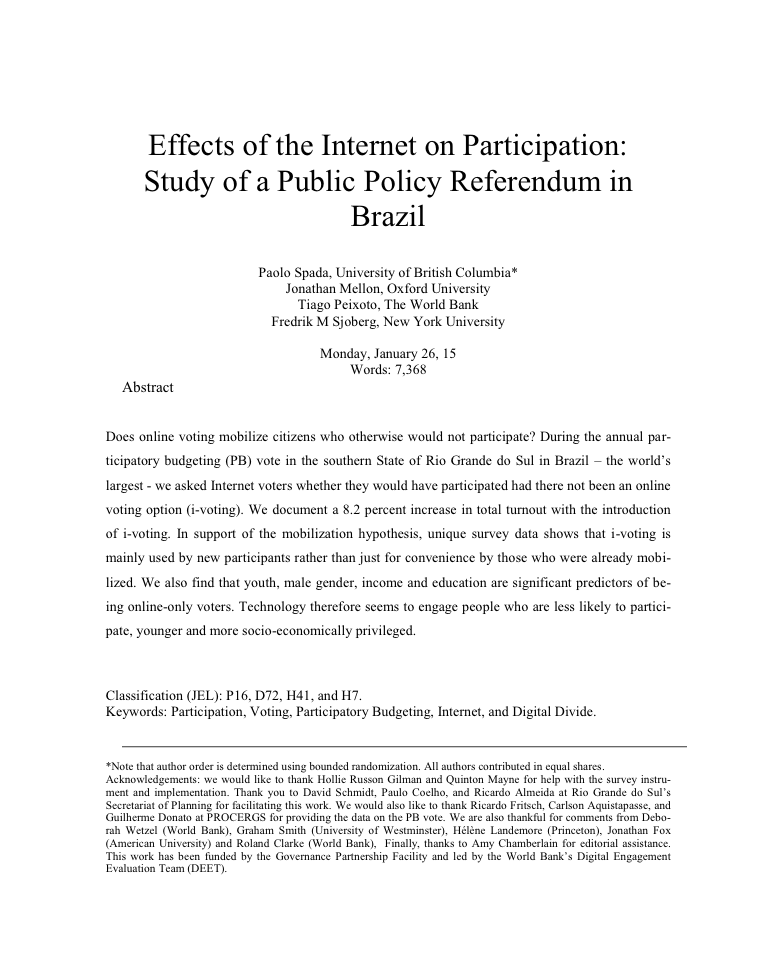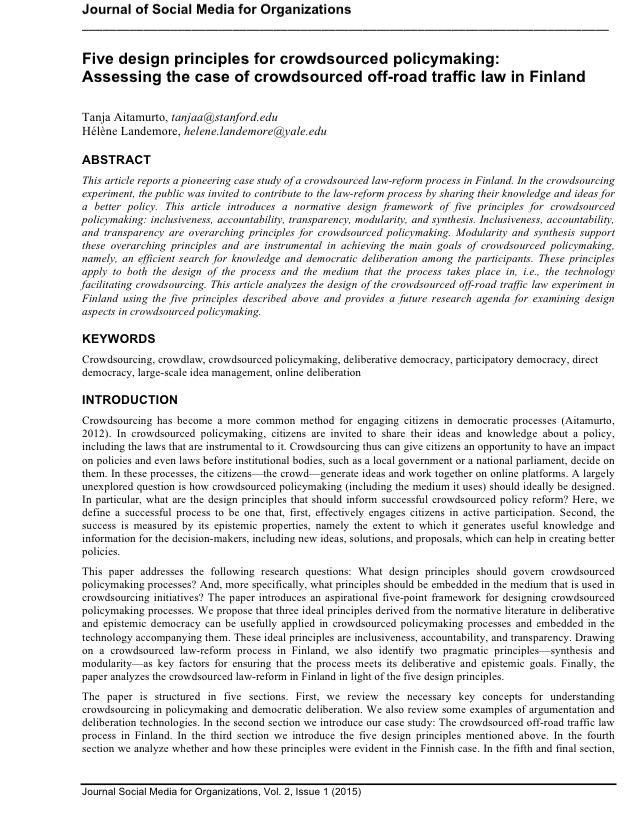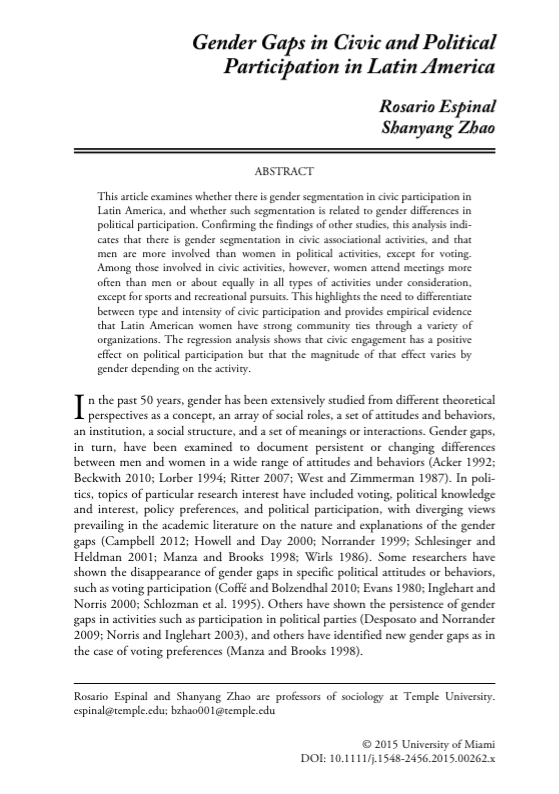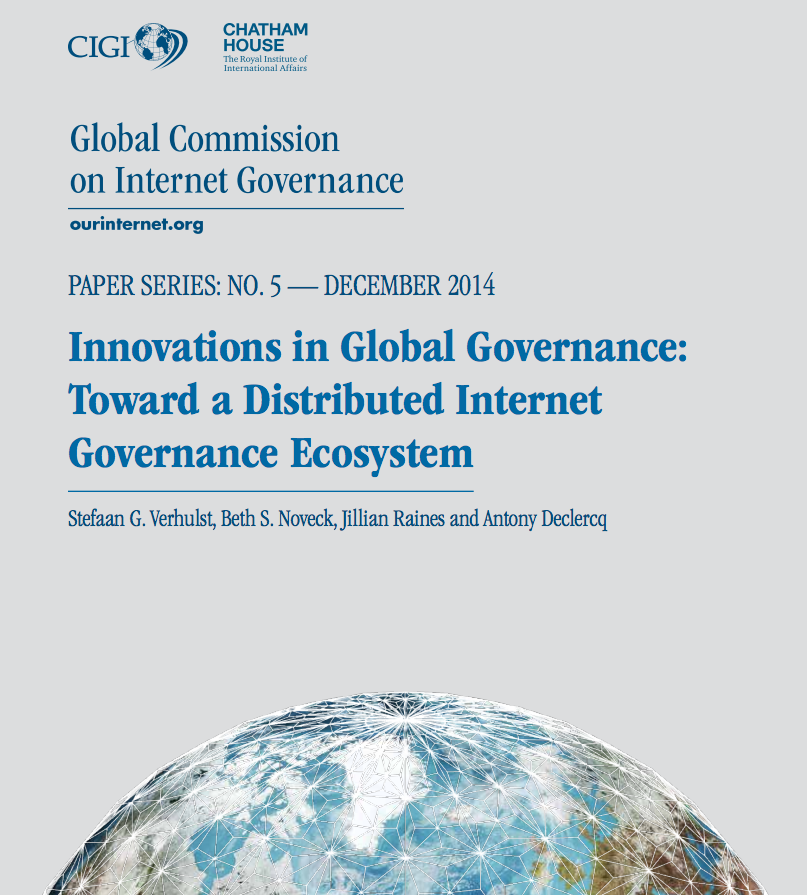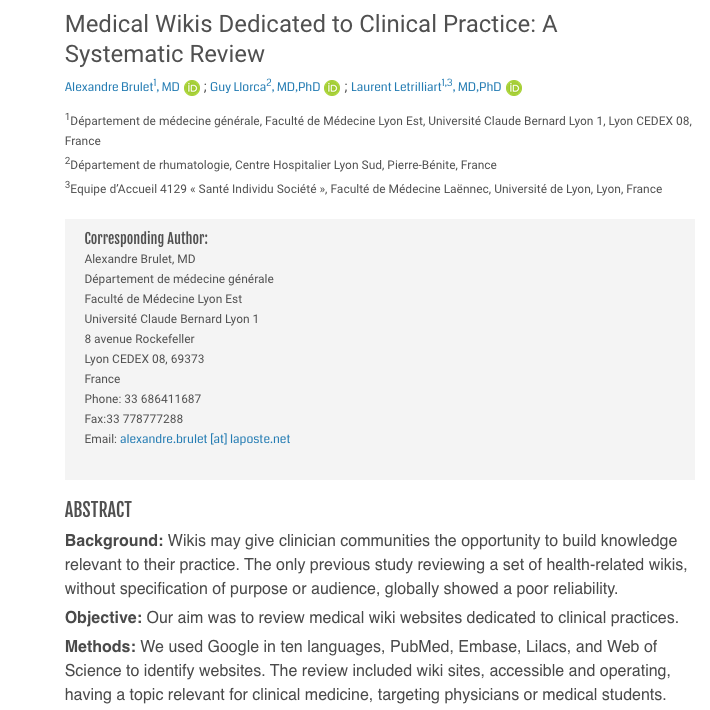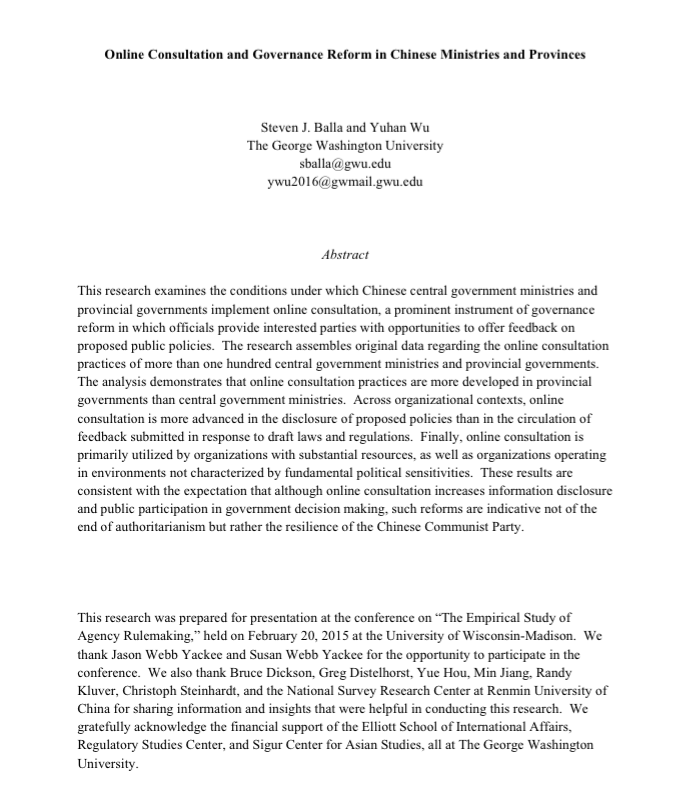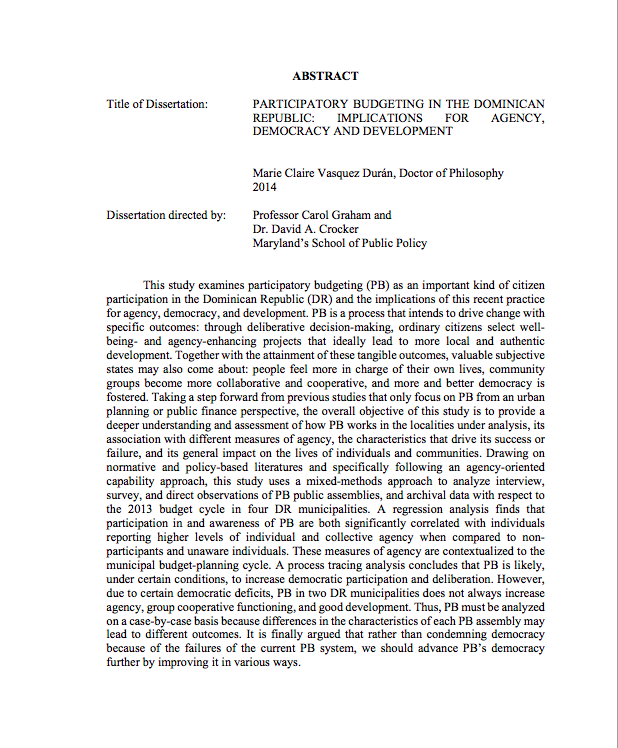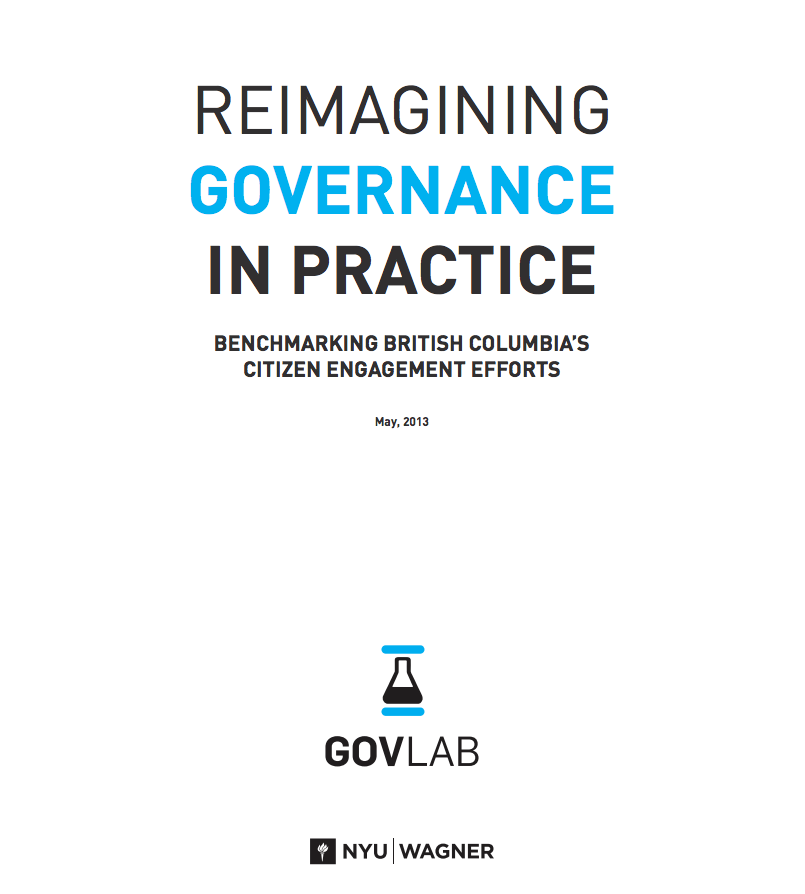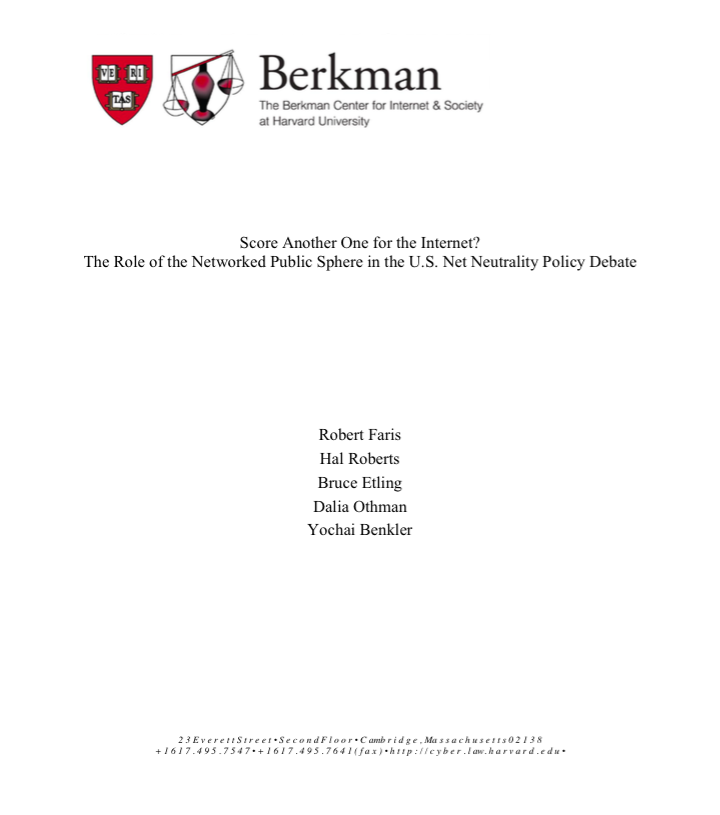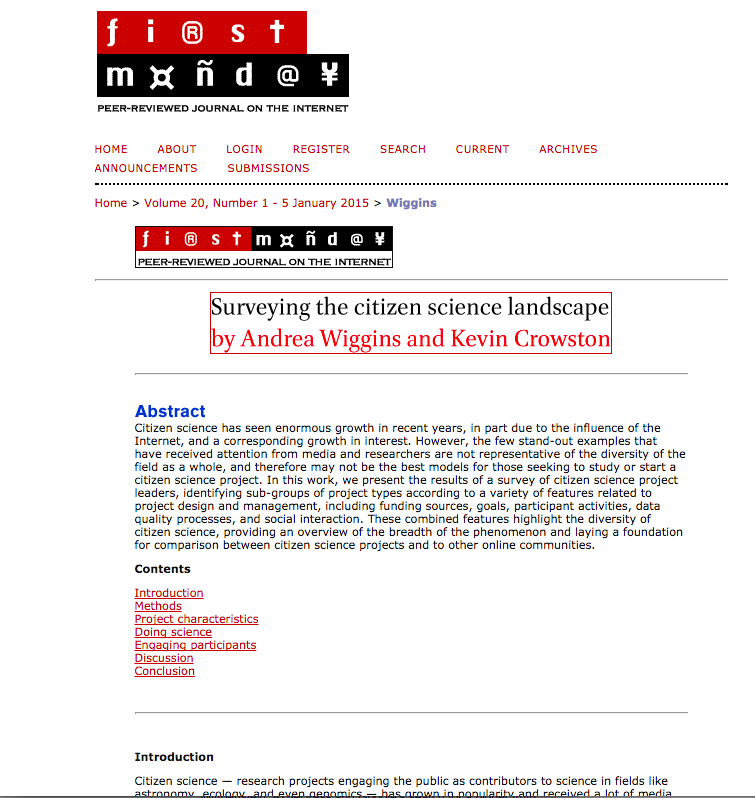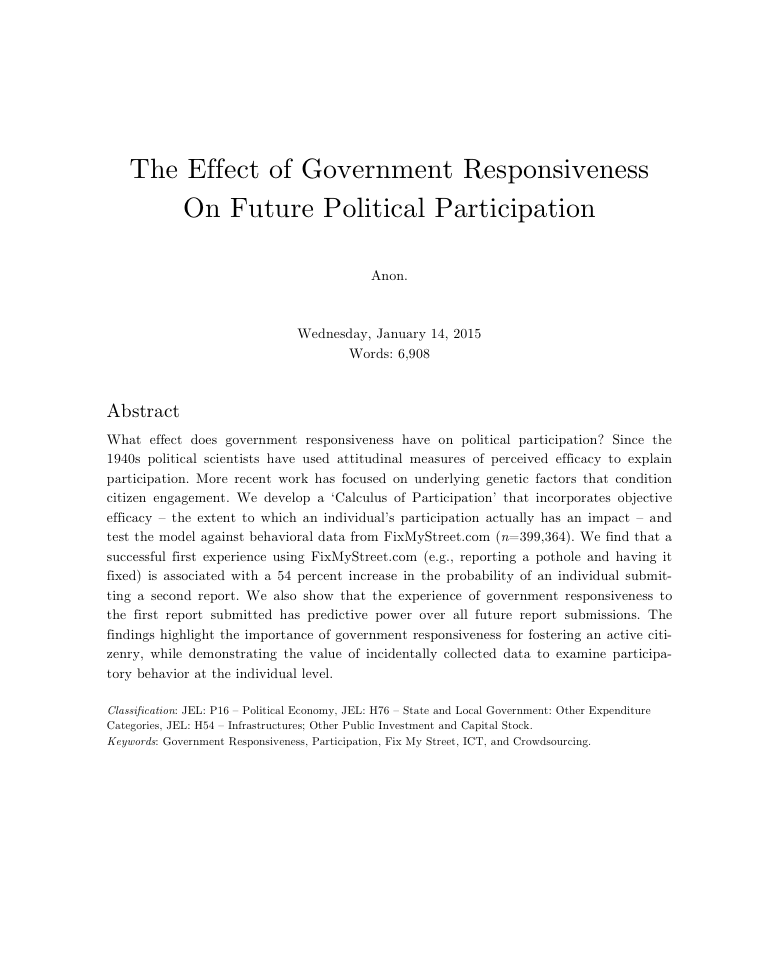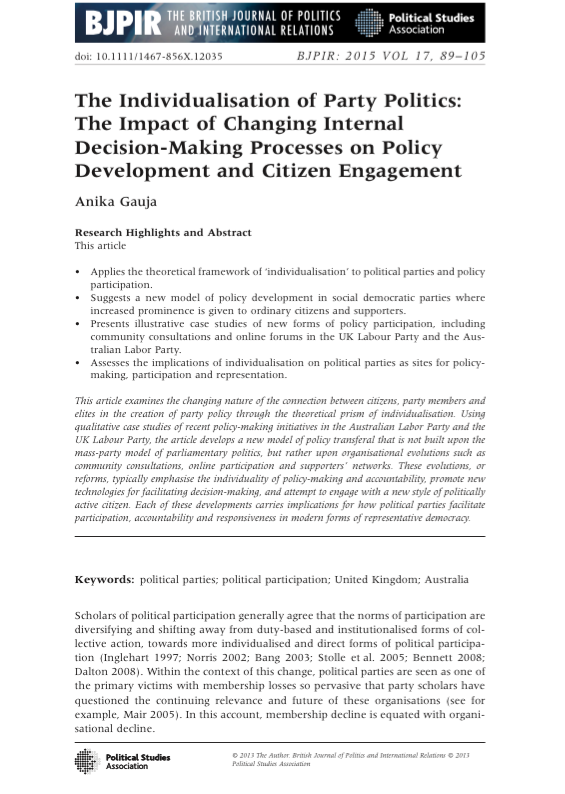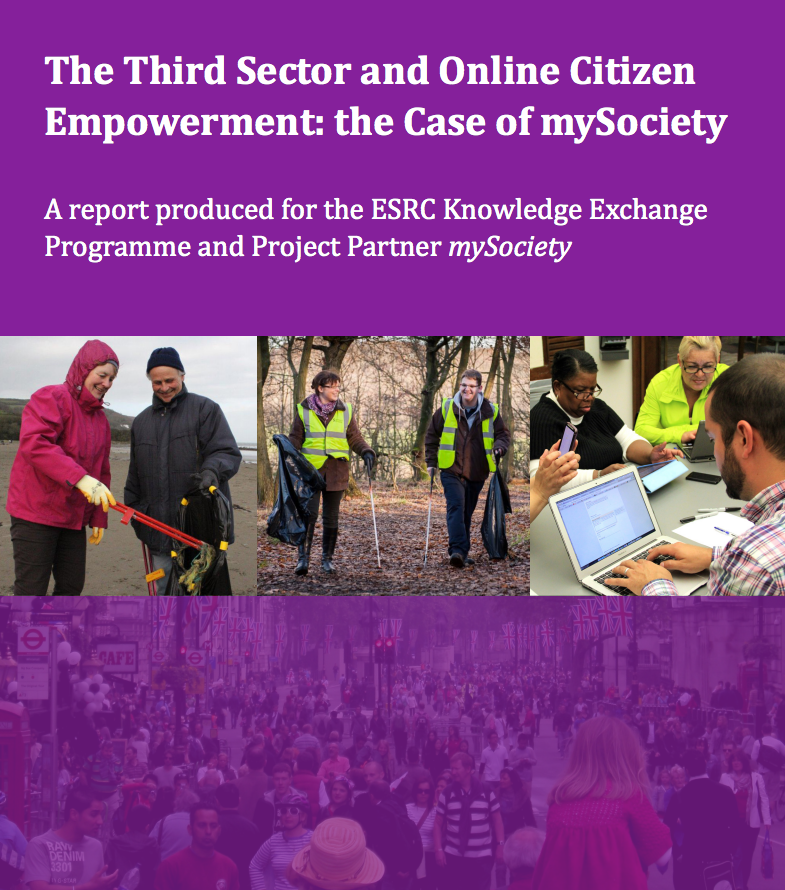-
Online Participation in Higher Education Decision-making
-
Urban Data Games: Creating Smart Citizens for Smart Cities
-
A sentiment analysis of U.S. local government tweets: The connection between tone and citizen involvement
-
Does Twitter Increase Perceived Police Legitimacy?
-
Crowdsourced earthquake early warning
-
A Process Model for Crowdsourcing Design: A Case Study in Citizen Science
-
Citizen Science for Citizen Access to Law
-
Crowdsourcing Pedestrian and Cyclist Activity Data
-
Does Crowdsourcing Legislation Increase Political Legitimacy? The Case of Avoin Ministeri in Finland
-
Embracing Crowdsourcing: A Strategy for State and Local Governments Approaching “Whole Community” Emergency Planning
-
Crowdsourcing as a tool for political participation? – the case of Ugandawatch
-
Competition-Based Innovation: The Case of the X Prize Foundation
-
Does Participatory Budgeting Improve Decentralized Public Service Delivery?
-
Is Transparency a Recipe for Innovation?
-
Can 311 Call Centers Improve Service Delivery? Lessons from New York and Chicago
-
Motivations for sustained participation in crowdsourcing: The role of talk in a citizen science case study
-
Open Government and Democracy: A Research Review
-
Opening Government: Designing Open Innovation Processes to Collaborate With External Problem Solvers
-
Participatory sensing: enabling interactive local governance through citizen engagement
-
Smart cities: the state-of-the-art and governance challenge
-
A micro-democratic perspective on crowd-work
-
A New Taxonomy of Smart City Projects
-
Crowd-Sourcing Corruption: What Petrified Forests, Street Music, Bath Towels and the Taxman Can Tell Us About the Prospects for Its Future
-
“Open” disclosure of innovations, incentives and follow-on reuse: Theory on processes of cumulative innovation and a field experiment in computational biology
-
Can Bottom-Up Institutional Reform Improve Service Delivery?
-
A taxonomy of crowdsourcing based on task complexity
-
Real-time information about public transport’s position using crowdsourcing
-
Open Source Governance—A More Ambitious Cousin of Collaborative Governance
-
Creating a national citizen engagement process for energy policy
-
Experiments on Crowdsourcing Policy Assessment
-
Crowdteaching: Supporting Teaching as Designing in Crowdsourcing Communities
-
Business Models for Open Innovation: Matching Heterogenous Open Innovation Strategies with Business Model Dimensions
-
The Decalogue of Policy Making 2.0: Results from Analysis of Case Studies
on the Impact of ICT for Governance and Policy Modelling
-
Using Crowds for Evaluation Tasks: Validity by Numbers vs. Validity by Expertise
-
Smart cities: moving beyond urban cybernetics to tackle wicked problems
-
Designing an Online Civic Engagement Platform: Balancing “More” vs. “Better” Participation in Complex Public Policymaking
-
Brief survey of crowdsourcing for data mining
-
Social Network Sites as a Mode to Collect Health Data: A Systematic Review
-
Crowdsourcing Parking Lot Occupancy using a Mobile Phone Application
-
Collaborative approaches to public sector innovation: A scoping study
-
Innovation Contests
-
Crowdsourcing medical expertise in near real time
-
Quizz: Targeted Crowdsourcing with a Billion (Potential) Users
-
Revolutionising Digital Public Service Delivery: A UK Government Perspective
-
True Collective Intelligence? A Sketch of a Possible New Field
-
Crowdsourcing and regulatory reviews: A new way of challenging red tape in British government?
-
Habermas and the Garants : Narrowing the gap between policy and practice in French organisation – citizen engagement
-
Mind the Map: The Impact of Culture and Economic Affluence on Crowd-Mapping Behaviours
-
Managing Innovation in a Crowd
-
Citizens' Use of New Media in Authoritarian Regimes: A Case Study of Uganda
-
Collective Intelligence or Group Think? Engaging Participation Patterns in World without Oil
-
Competition-Based Innovation: The Case of the X Prize Foundation
-
Crowdsourcing Dilemma
-
Data democracy - increased supply of geospatial information and expanded participatory processes in the production of data
-
Developing Together: Investigating best practices for community development and public consultation
-
Do Experts or Collective Intelligence Write with More Bias? Evidence from Encyclopaedia Britannica and Wikipedia
-
Does Enclave Deliberation Polarize Opinions?
-
Does Participatory Budgeting Improve Decentralized Public Service Delivery?
-
Effects of the Internet on Participation: Study of a Public Policy Referendum in Brazil
-
Five design principles for crowdsourced policymaking: Assessing the case of crowdsourced off-road traffic law in Finland
-
Gender Gaps in Civic and Political Participation in Latin America
-
Innovations in Global Governance: Towards a Distributed Internet Governance Ecosystem
-
Medical Wikis Dedicated to Clinical Practice: A Systematic Review
-
Online Consultation and Governance Reform in Chinese Ministries and Provinces
-
Participatory Budgeting in the Dominican Republic: Implications for Agency, Democracy and Development
-
Reimagining Governance in Practice: Benchmarking British Columbia’s Citizen Engagement Efforts
-
Score Another One for the Internet? The Role of the Networked Public Sphere in the U.S. Net Neutrality Policy Debate"
-
Surveying the citizen science landscape
-
The Effect of Government Responsiveness on Future Political Participation
-
The Individiualisation of Party Politics: The Impact of Changing Internal Decision-Making Processes on Policy Development and Citizen Engagement
-
The Third Sector and Online Citizen Empowerment: the Case of mySociety
